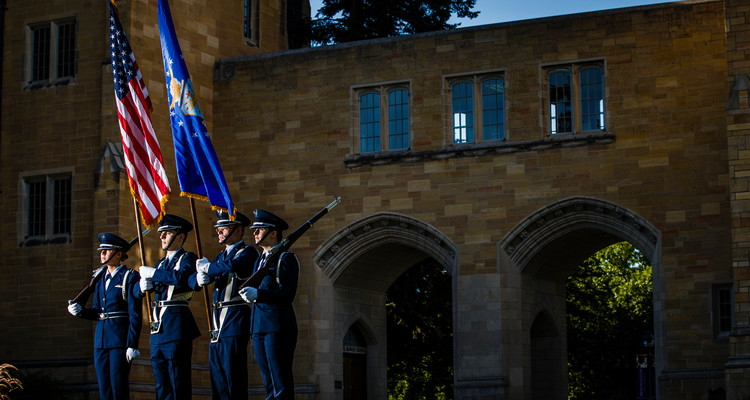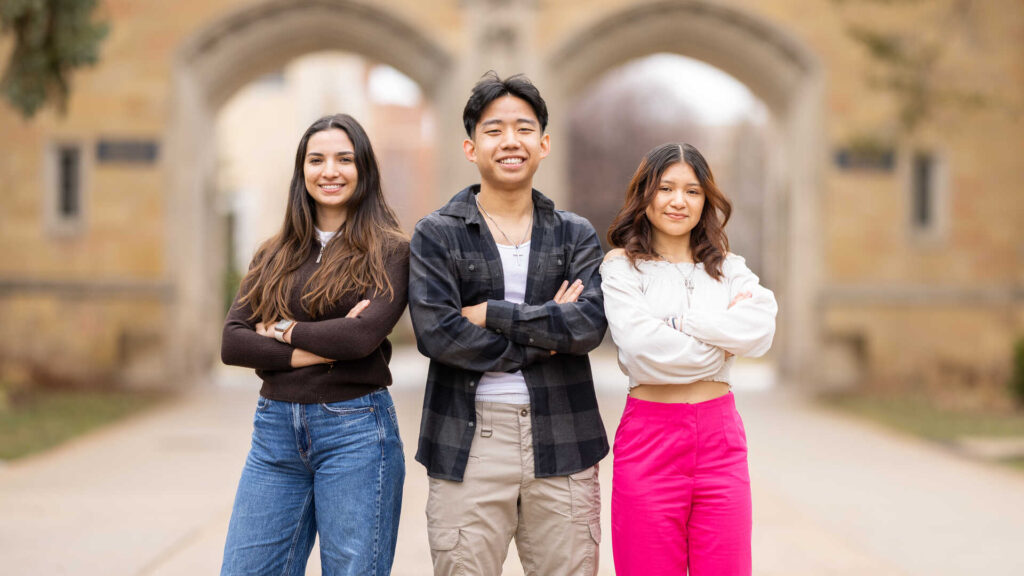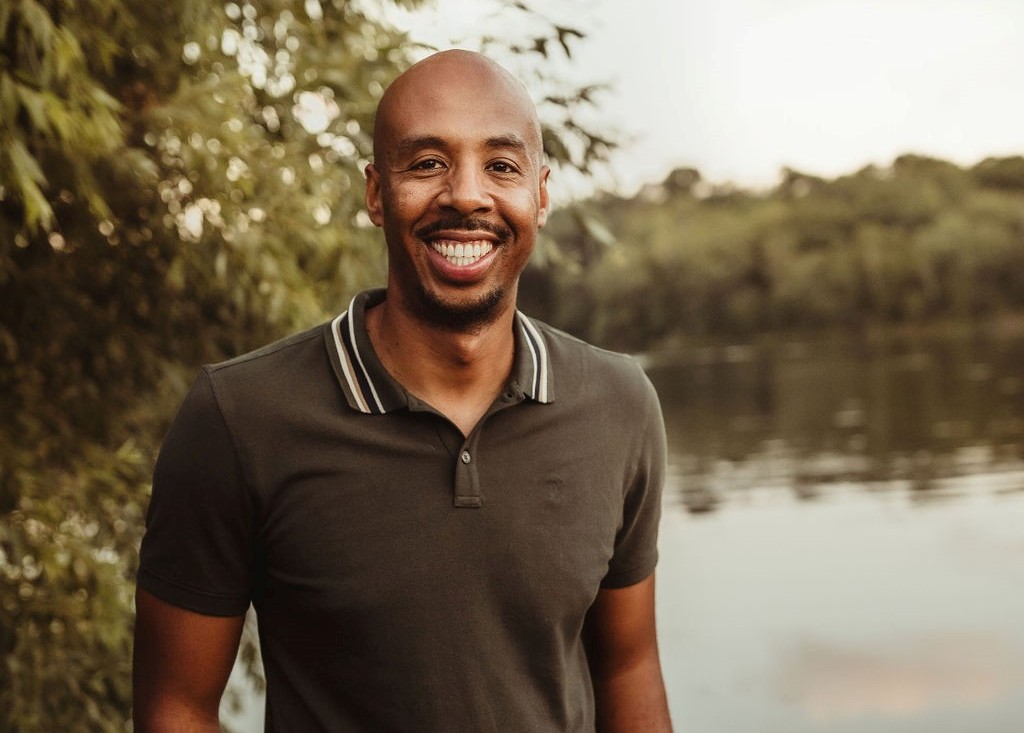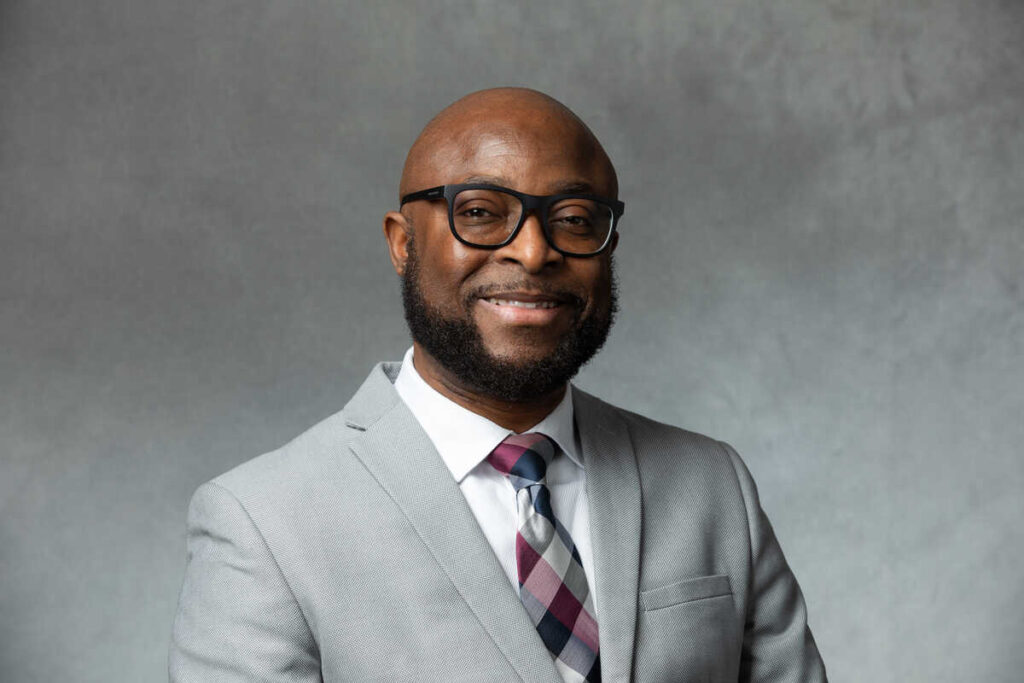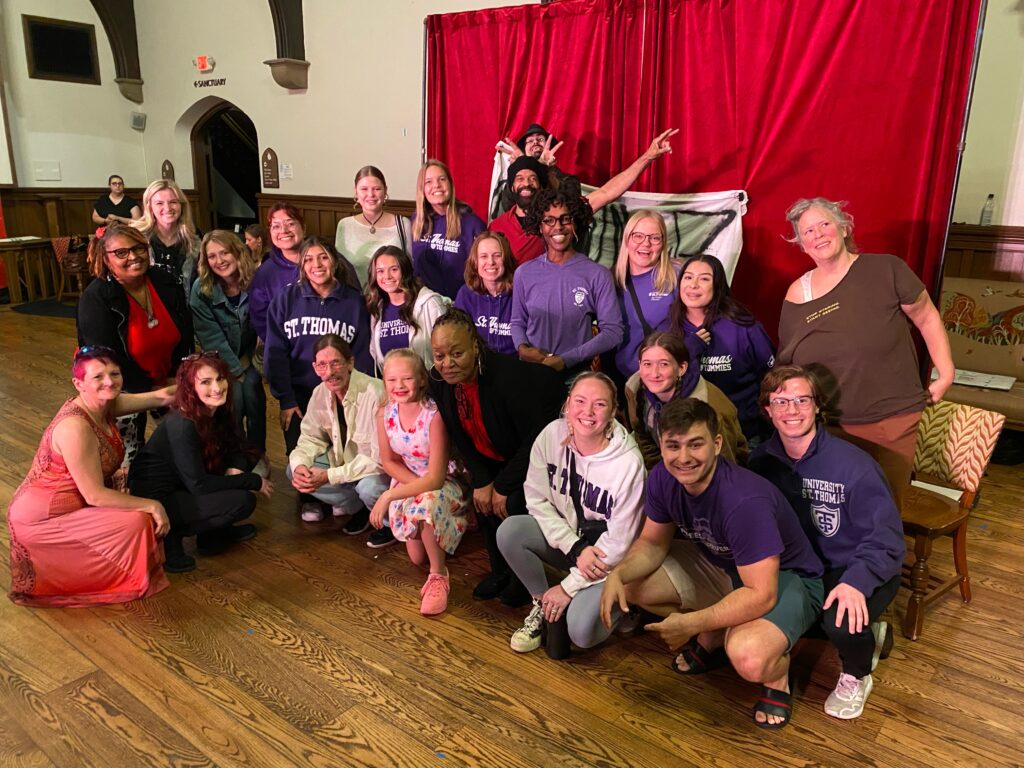Many things happened at and around St. Thomas on March 17, 2017. None of them may have been as consequential, though, for the future of the university as the meeting between President Julie Sullivan, some faculty members and five student veterans of the St. Thomas Veterans’ Association.
Senior Peter Watson was the club president and helped develop the plan presented to Sullivan that day for more veteran-friendly services, which centered around creating a physical space on campus dedicated to veterans.
“I asked them to come back with a larger proposal that would support our aspiration of becoming the most veteran-friendly campus in the upper Midwest,” Sullivan said. “I was delighted with the proposal they returned with, and their ideas shaped our creation of the Veterans Resource Center.”
Those ideas are now a reality as the Veterans Resource Center (VRC) celebrated its grand opening this November, thanks to support from APiGroup Inc., and Lee and Penny Anderson. With its founding director, Norman Ferguson, on board and a dedicated group of veteran students helping push things forward, the promise and excitement around what the center can be for St. Thomas and its students is huge.
“It’s been exciting to see and be a part of,” said Watson, a finance major from Goodhue, Minnesota, who served two deployments over four years before enrolling at St. Thomas in 2014. “It’s going to be a great area for veterans to reconnect, rebuild that comradery they may have lost coming out of the military. … Most veterans coming in are at least 23 and have experiences that are vastly different than traditional students. This will be incredibly helpful to their well-being and success here."
Several donors supported the center’s launch, including principal support from APiGroup Inc. and the Andersons.
“The Andersons and APi Group are our largest supporters, enabling our Veterans Resource Center (VRC) to become a reality in November 2017,” said Joe Plante, associate vice president of principal and leadership gifts at St. Thomas. “The VRC and St. Thomas are blessed with this supportive partnership, a relationship that has propelled access, excellence and opened doors of opportunity for our veteran students.”
Many St. Thomas students, staff and faculty helped plan out the possibilities for this new space on campus, which is located in the bottom level of Murray-Herrick Center in St. Paul.
“We now will have the resources to more fully support veteran students with their transition to the university, as well as provide an opportunity for veterans to more fully engage into the campus community,” added vice president for student affairs Karen Lange, a key planning partner for Watson and others. “We are confident these new additions will help veteran students achieve their educational and career goals.”
A one-stop-shop for veterans
As the space and programming continues to develop, Ferguson said the dedication to supporting veteran students is a necessity. A veteran himself coming to St. Thomas after directing a similar center at University of Northern Iowa, Ferguson is looking forward to helping out veteran students in any and every way they need it.
“It’s a very holistic approach. Working with different partners on campus, financial aid, counseling, academic counseling, registrars, academic and student affairs, all working to make sure this population is successful,” he said. “This center is a one-stop-shop for veterans in that they can come here and we either have the resources or know where to point them. … They can go to one place. It’s the same thing for the rest of the campus: If they have any questions, concerns, anything military-related they know they can come here or contact here.”
Many student veterans deal with more stress than students entering out of high school or transferring form other colleges or universities, including senior Kyle Reid, who was featured in the winter 2017 issue of St. Thomas Magazine discussing the difficulties of life with post-traumatic stress disorder and conversion disorder. While Ferguson stressed the fact not every veteran has PTSD and many with PTSD are not veterans, the reality is that “transitioning from military to civilian life can be so difficult,” he said. “Being able to have that one place to talk to them and recognize where they are mentally, emotionally, spiritually is great. … If we’re able to catch them at the beginning, we may not be able to prevent everything, but help them know they have the resources to navigate things and be more likely to stay here and be successful.”
Ferguson envisions the center having a key role in educating the rest of the student body about veterans’ experiences, as well, including with “green zone training” for students, faculty and staff.
“We’ll go through military culture, why they joined, how the transition to civilian life and a university looks. Just to help everyone have a better understanding,” he said. “I’ve done these types of training in the past and been very successful. There’s a need and desire for it here.”
The common veteran banner
Having Watson and other veterans so clearly articulate their desire for a center like this and everything it represents was crucial. While he said he wasn’t sure to begin with if this would be something he could benefit from himself before he graduated (“Over the summer it just took off; I can’t believe it’s already here,” Watson said), the whole thing is first and foremost about St. Thomas’ nearly 200 veteran students.
“Something you had in your unit was that common banner to rally behind. This can be that common banner. There’s no misstep in the transition here,” Watson said. “It brings all the sticks to one spot instead of being scattered in the wind. There’s one spot to go for everything that has to do with your benefits, outside resources, any help you need, or if you want to just come and hang out.”
Already veteran alumni have contacted the center with offers to set students up with internship or job opportunities, a prime example of how the center can help graduates stay connected to St. Thomas, too.
“It’s been absolutely wonderful to see it develop. To help make a change for the better has been my drive,” Watson said. “The future veterans coming in, if we can help so they don’t have to go through some of the turmoil and dark paths so many veterans do have to experience, then we should absolutely get behind that. Being able to help facilitate that here has been one of the greatest things I’ve done in my life.”
